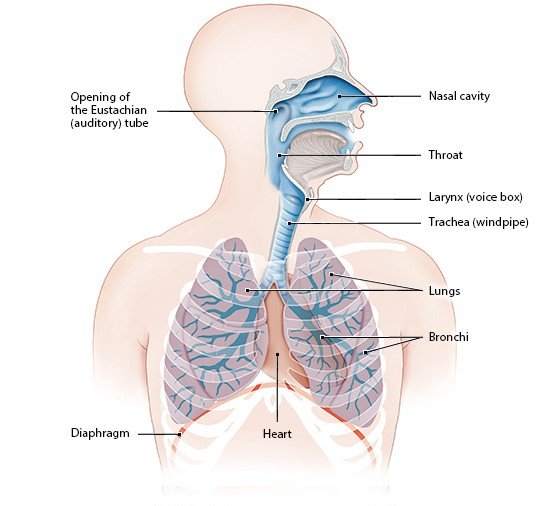Azh N, Barzkar F, Motamed-Gorji N et al. Nonsteroidal anti-inflammatory drugs in acute viral respiratory tract infections: An updated systematic review. Pharmacol Res Perspect 2022; 10(2): e00925.
Cho H, Myung SK, Cho HE. Efficacy of Vitamin D Supplements in Treatment of Acute Respiratory Infection: A Meta-Analysis for Randomized Controlled Trials. Nutrients 2022; 14(6).
Choi IK, Lee HK, Ji YJ et al. A Comparison of the Efficacy and Safety of Non-Steroidal Anti-Inflammatory Drugs versus Acetaminophen in Symptom Relief for the Common Cold: A Meta-Analysis of Randomized Controlled Trial Studies. Korean J Fam Med 2013; 34(4): 241-249.
David S, Cunningham R. Echinacea for the prevention and treatment of upper respiratory tract infections: A systematic review and meta-analysis. Complement Ther Med 2019; 44: 18-26.
De Sutter AI, Eriksson L, van Driel ML. Oral antihistamine-decongestant-analgesic combinations for the common cold. Cochrane Database Syst Rev 2022; (1): CD004976.
Deckx L, De Sutter AI, Guo L et al. Nasal decongestants in monotherapy for the common cold. Cochrane Database Syst Rev 2016; (10): CD009612.
Deutsche Gesellschaft für Allgemeinmedizin und Familienmedizin (DEGAM). S3-Leitlinie Akuter und chronischer Husten. AWMF-Registernr.: 053-013. 2023.
Ebell MH, Lundgren J, Youngpairoj S. How long does a cough last? Comparing patients' expectations with data from a systematic review of the literature. Ann Fam Med 2013; 11(1): 5-13.
Hawke K, King D, van Driel ML et al. Homeopathic medicinal products for preventing and treating acute respiratory tract infections in children. Cochrane Database Syst Rev 2022; (12): CD005974.
Hemilä H, Chalker E. Vitamin C for preventing and treating the common cold. Cochrane Database Syst Rev 2013; (1): CD000980.
Her L, Kanjanasilp J, Chaiyakunapruk N et al. Efficacy and Safety of Eucalyptus for Relieving Cough: A Systematic Review and Meta-Analysis of Randomized Controlled Trials. J Integr Complement Med 2022; 28(3): 218-226.
Jefferson T, Del Mar CB, Dooley L et al. Physical interventions to interrupt or reduce the spread of respiratory viruses. Cochrane Database Syst Rev 2020; (11): CD006207.
Karsch-Völk M, Barrett B, Kiefer D et al. Echinacea for preventing and treating the common cold. Cochrane Database Syst Rev 2014; (2): CD000530.
Kenealy T, Arroll B. Antibiotics for the common cold and acute purulent rhinitis. Cochrane Database Syst Rev 2013; (6): CD000247.
Kim SY, Chang YJ, Cho HM et al. Non-steroidal anti-inflammatory drugs for the common cold. Cochrane Database Syst Rev 2015; (9): CD006362.
Li S, Yue J, Dong BR et al. Acetaminophen (paracetamol) for the common cold in adults. Cochrane Database Syst Rev 2013; (7): CD008800.
Little P, Moore M, Kelly J et al. Ibuprofen, paracetamol, and steam for patients with respiratory tract infections in primary care: pragmatic randomised factorial trial. BMJ 2013; 347: f6041.
Martineau AR, Jolliffe DA, Greenberg L et al. Vitamin D supplementation to prevent acute respiratory infections: individual participant data meta-analysis. Health Technol Assess 2019; 23(2): 1-44.
Montesinos-Guevara C, Buitrago-Garcia D, Felix ML et al. Vaccines for the common cold. Cochrane Database Syst Rev 2022; (12): CD002190.
Oduwole O, Udoh EE, Oyo-Ita A et al. Honey for acute cough in children. Cochrane Database Syst Rev 2018; (4): CD007094.
Pschyrembel Online. 2023.
Robert Koch-Institut (RKI). Influenza. 2024.
Robert Koch-Institut (RKI). Influenza (Teil 1): Erkrankungen durch saisonale Influenzaviren. 2018.
Singh M, Singh M, Jaiswal N et al. Heated, humidified air for the common cold. Cochrane Database Syst Rev 2017; (8): CD001728.
Timmer A, Günther J, Motschall E et al. Pelargonium sidoides extract for treating acute respiratory tract infections. Cochrane Database Syst Rev 2013; (10): CD006323.
Zhao Y, Dong BR, Hao Q. Probiotics for preventing acute upper respiratory tract infections. Cochrane Database Syst Rev 2022; (8): CD006895.
IQWiG health information is written with the aim of helping people understand the advantages and disadvantages of the main treatment options and health care services.
Because IQWiG is a German institute, some of the information provided here is specific to the German health care system. The suitability of any of the described options in an individual case can be determined by talking to a doctor. informedhealth.org can provide support for talks with doctors and other medical professionals, but cannot replace them. We do not offer individual consultations.
Our information is based on the results of good-quality studies. It is written by a team of health care professionals, scientists and editors, and reviewed by external experts. You can find a detailed description of how our health information is produced and updated in our methods.


